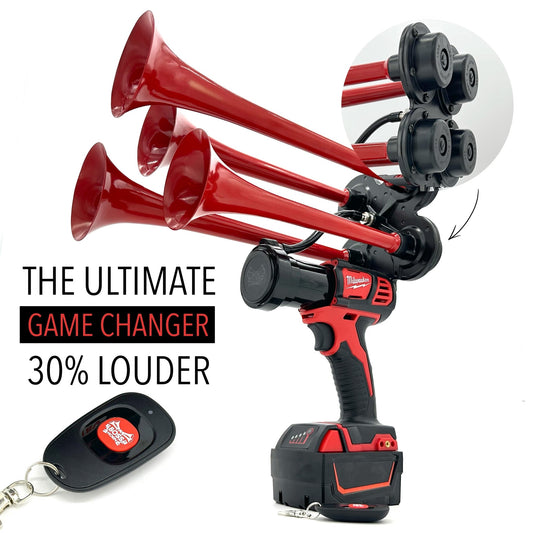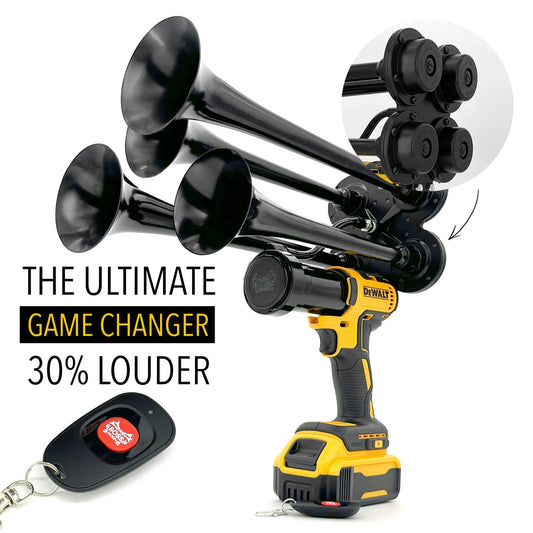The sound of a loud, buzzing instrument echoing through a stadium is a familiar and iconic sound to soccer fans worldwide. This musical element has been a crucial part of soccer culture for decades, dating back to the early 20th century when spectators began using rudimentary forms of noise-making devices to show their support for their teams. Over time, these instruments evolved into the vibrant and varied horns we hear today, adding to the electric atmosphere of soccer matches.
One of the most popular types of horns used in soccer stadiums is known for its distinctive buzzing sound that can be heard from miles away. These horns, with their unmistakable noise, have become synonymous with the passion and excitement of soccer matches. Fans use them to create an intense and vibrant environment that energizes players and creates a sense of camaraderie among supporters.
The use of horns at soccer games has not been without controversy, with some critics citing noise pollution and safety concerns as reasons to ban them from stadiums. However, many fans argue that these instruments are an integral part of the game-day experience and contribute to the unique atmosphere of soccer matches. In response to these concerns, some stadiums have implemented rules and regulations regarding the use of horns, striking a balance between allowing fans to express their support and maintaining a safe and enjoyable environment for all attendees.
Whether you love them or hate them, there's no denying the impact that horns have on the overall experience of watching a soccer game. From creating a powerful ambiance to fostering a strong sense of community among supporters, these instruments play an essential role in the rich tapestry of soccer culture. Love them or hate them, horns are here to stay as a symbol of passion and dedication in the world of soccer.
What is the significance of the horn used at soccer games?
The horn used at soccer games, also known as a vuvuzela, is a traditional South African instrument that has become popular at matches around the world. Its loud and distinctive sound helps to create an energetic and passionate atmosphere in the stadium, adding to the excitement of the game for players and spectators alike. The vuvuzela is often used to signal the start or end of a match, as well as to celebrate goals and important plays. Some argue that the constant noise can be distracting or annoying, but many fans believe that it adds to the overall experience of watching live soccer. To delve deeper into the history and impact of the vuvuzela at soccer games, continue reading the following sections.
Soccer fans around the world are known for their passion and enthusiasm during games. One way they show their support for their favorite teams is by using various instruments to create a lively atmosphere in the stadium. One of the most popular instruments among soccer fans is the vuvuzela.
The vuvuzela is a long plastic horn that produces a loud, buzzing sound when blown into. Although the vuvuzela originated in South Africa, it gained worldwide popularity during the 2010 FIFA World Cup held in the country. Despite being controversial due to its loud and constant noise, the vuvuzela has become a staple at soccer games, adding to the excitement and energy of the crowd.
Benefits of Using Vuvuzelas
- Creates a vibrant atmosphere: The sound of vuvuzelas can be heard throughout the stadium, creating a sense of unity and camaraderie among fans.
- Shows support for the team: Blowing a vuvuzela is a way for fans to show their enthusiasm and support for their favorite team.
- Intimidates the opposition: The loud and continuous sound of vuvuzelas can be intimidating for the opposing team, giving the home team a psychological advantage.
Criticism of Vuvuzelas
- Disruptive noise: The constant buzzing sound of vuvuzelas has been criticized for being too loud and distracting, affecting players, coaches, and even viewers watching the game on television.
- Health risks: Prolonged exposure to the loud noise of vuvuzelas can lead to hearing damage, especially for those sitting close to the fans blowing the horns.
- Communication issues: The noise of vuvuzelas can make it difficult for players to communicate on the field, impacting their ability to execute plays effectively.
Despite the criticisms, vuvuzelas continue to be a popular choice for soccer fans looking to add excitement and energy to games. Whether loved or loathed, there is no denying the impact that these colorful horns have on the overall fan experience at soccer matches.
Statistics:
- According to a survey conducted at the 2010 FIFA World Cup, an estimated 1.5 million vuvuzelas were sold during the tournament.
- The noise level of vuvuzelas has been measured at over 100 decibels, which is equivalent to the sound of a chainsaw or a jet engine.
https://youtube.com/watch?v=OyLmaquO-kE
Q: What are the rules regarding the use of noisemakers at soccer games?
A:
- Noisemakers are allowed at most soccer games, but they must be used responsibly and not disrupt the game.
- The use of noisemakers should not interfere with the players' ability to hear referee calls or communicate with their teammates.
- Spectators should be mindful of those around them and not use noisemakers excessively or in a way that may cause harm to others.
1. Use of noisemakers should not disrupt the game.
2. Noisemakers should not interfere with players' ability to communicate.
3. Spectators should use noisemakers responsibly.
Q: Are there any specific types of noisemakers that are prohibited at soccer games?
A:
- Some venues may have restrictions on the types of noisemakers allowed, such as air horns or whistles.
- Noisemakers that are excessively loud or disruptive may be banned from certain stadiums.
- It is important for spectators to check with the venue or event organizers to see if there are any restrictions on specific types of noisemakers.
1. Air horns and whistles may be prohibited at some venues.
2. Excessively loud or disruptive noisemakers may be banned.
3. Check with venue or event organizers for specific restrictions.
Q: How can spectators ensure they are using their noisemakers in a respectful manner?
A:
- Spectators should be mindful of the volume of their noisemakers and avoid using them excessively.
- It is important to consider those around you and ensure that the noise from your noisemaker is not disturbing to others.
- If asked by security or event staff to lower the volume or stop using a noisemaker, spectators should comply respectfully.
1. Be mindful of volume and avoid excessive use.
2. Consider others around you when using a noisemaker.
3. Comply respectfully if asked to lower volume or stop using a noisemaker.
Q: Are there any safety concerns associated with the use of noisemakers at soccer games?
A:
- One safety concern with the use of noisemakers is the potential for hearing damage if used at a loud volume for an extended period of time.
- Spectators should be cautious when using noisemakers with small children, as the loud noise may be harmful to their ears.
- It is important to handle noisemakers with care to avoid injury, especially if they are sharp or have moving parts.
1. Noisemakers used at loud volumes may cause hearing damage.
2. Exercise caution when using noisemakers around small children.
3. Handle noisemakers carefully to avoid injury.
Q: What should spectators do if they encounter someone using a noisemaker inappropriately at a soccer game?
A:
- If a spectator notices someone using a noisemaker in a disruptive or unsafe manner, they should alert stadium security or event staff.
- It is important to address the issue promptly to prevent the disruption from escalating and affecting other spectators.
- Spectators should not confront the individual using the noisemaker themselves, but instead rely on trained personnel to handle the situation.
1. Alert stadium security or event staff if you encounter inappropriate noisemaker use.
2. Address the issue promptly to prevent escalation.
3. Do not confront the individual directly, leave it to trained personnel.
Conclusion
In conclusion, the use of horns at soccer games adds a unique element to the atmosphere of the match. It helps to amp up the energy of the fans, creating an exciting and electric environment in the stadium. However, it is important for fans to use horns responsibly and considerately, so as not to disrupt the game or annoy other spectators. Ultimately, the use of horns can enhance the overall experience of attending a soccer game, contributing to the passion and excitement that makes the sport so thrilling to watch.














